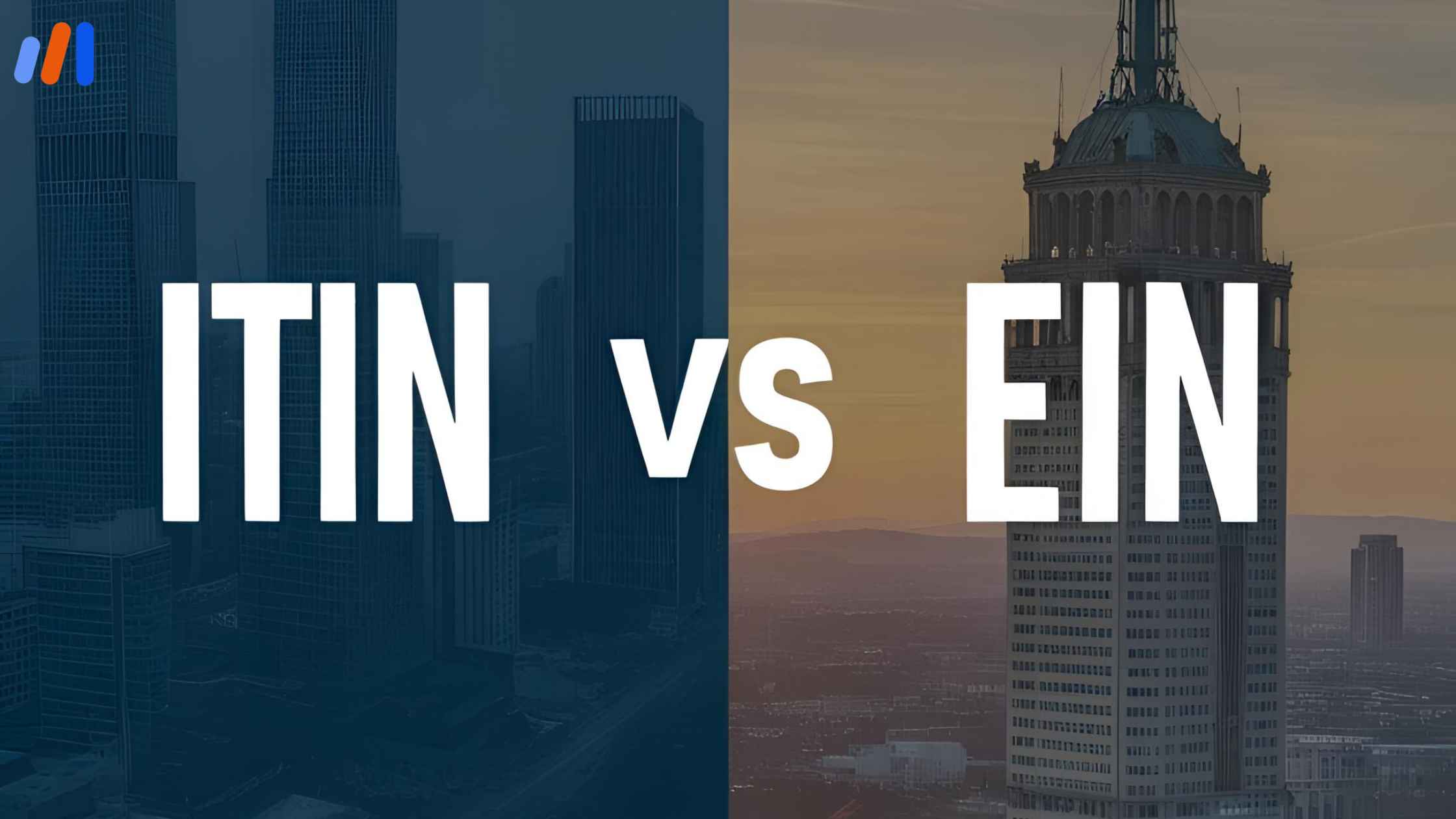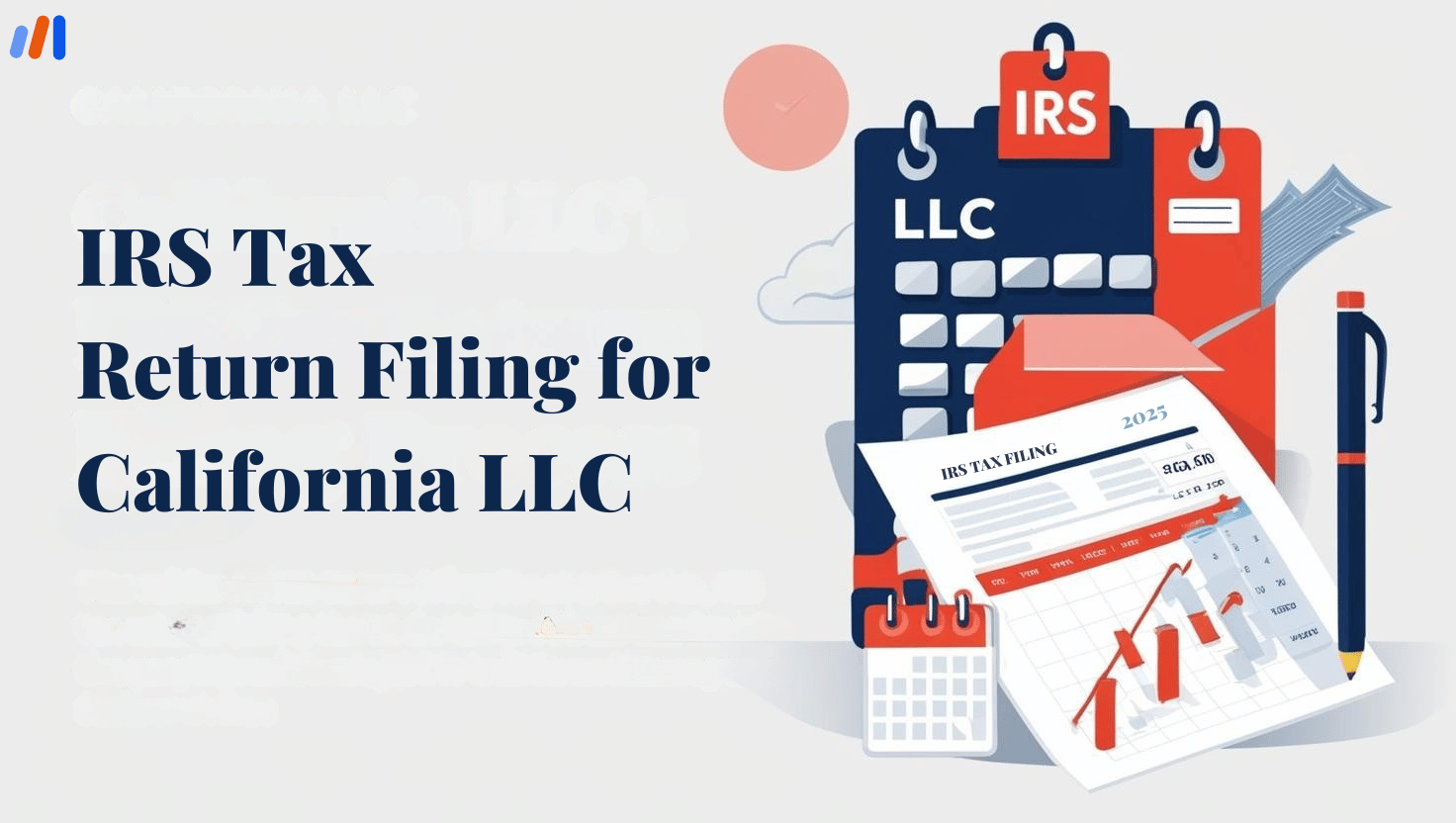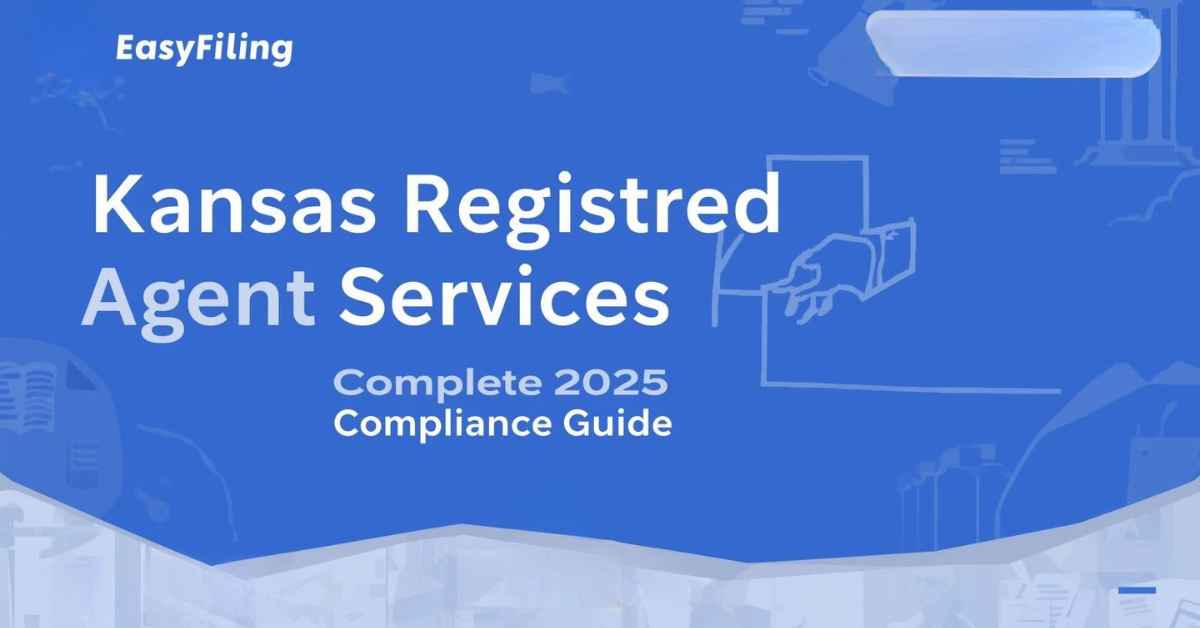When exploring U.S. taxation or business registration policies, it is highly likely that you have encountered the terms ITIN and EIN. While these terms may sound alike, they cater to different audiences and serve distinctly different purposes.
Whether you are running a business, filing taxes, or simply adhering to the IRS regulations, distinguishing between ITIN and EIN is vital.
In this comprehensive guide, we will cover what an ITIN and EIN are, who requires them, the application process, and the importance of selecting the appropriate one, particularly if you are an international entrepreneur, foreign investor, or a new business owner.
From tax filings to chasing the entrepreneurial dream, this article clarifies all concerning ITIN vs EIN.
What Is an ITIN?
An ITIN (Individual Taxpayer Identification Number) is a tax processing number that the IRS designates to people who must submit a U.S. tax return but do not qualify for a Social Security Number (SSN).
Who Needs an ITIN?
Obtaining an ITIN is essential in the following scenarios:
- You fall under the category of a non-resident alien who is required to submit a U.S. tax return.
- You’re a dependent or spouse of a U.S. citizen or resident alien.
- You are investing in real estate situated in the United States.
- It is mandatory to report income to the IRS, but obtaining an SSN is not possible.
An ITIN number serves a sole purpose: filing taxes. It does not affect a person’s immigration standing or employment chances in the U.S.
What Is an EIN?
An Employer Identification Number, or EIN, is a unique identifier assigned by the IRS to a specific business entity. Much like the ITIN, it is a nine-digit number used solely in the tax system.
Who Needs an EIN?
An EIN is essential in the following scenarios:
- You are in the initial stages of setting up an LLC, partnership, or corporation.
- As a sole proprietor, you are registering employees.
- You intend to open a business bank account.
- There is a need to pay employees or contractors.
- You need to file a business tax return.
In the United States, having an EIN number is crucial for engaging in business, especially for expansion or operating officially.
ITIN vs EIN: 7 Differentiating Features Explained
Here’s a quick recap of the comparison between ITIN vs EIN:
| Category | ITIN | EIN |
|---|---|---|
| Objective | Individual tax filing | Business identification |
| Granted to | Individuals without SSNs | Business owners and corporations |
| IRS Form | W-7 | SS-4 |
| Work Authorization | ❌ No | ✅ Yes (for business) |
| Set up a Bank Account | ❌ No | ✅ Yes |
| Immigration Status | Not affected | Not relevant |
| Valid for | Tax return filing only | Business activities and tax reporting |
To summarize: ITIN is designed for personal taxes, whereas EIN caters to executives of established or emerging ventures.
ITIN vs EIN for Foreign Nationals
This is where it can get tricky. Lots of non-U.S. residents find themselves needing one or both numbers, based on their status and intentions in America.
Foreign Residents Need an ITIN When:
- They are paid passive income in the U.S.
- They invest in real estate and need to report earnings.
- They have been claimed as a dependent or spouse on a U.S. tax return.
Foreign Residents Need an EIN When:
- They establish an LLC or corporation in the USA.
- They wish to sell on e-commerce platforms such as Amazon and Etsy.
- They apply for a U.S. business bank account.
- They need to hire employees based in the United States.
Many global business owners assume an ITIN is a substitute for an EIN, but this is false. The ITIN and EIN mix-up is a common reason for delays and rejections.
At Easy Filing, we guide non-U.S. residents in applying for EINs without the need for an SSN or ITIN, helping them sidestep errors and IRS rejections.
Advantages of Obtaining an EIN Number
Even if it’s not mandatory, getting an EIN has its benefits:
- Professional Credibility: Enhances business image.
- Open Business Bank Accounts: Essential for financial operations.
- Build Business Credit: Enables access to loans or credit.
- Separate Finances: Keeps personal and business assets distinct.
- Hire Employees: Required for payroll.
- Apply for Licenses and Permits: Often a legal requirement.
How to Apply for an ITIN
Steps:
- Complete Form W-7
- Include a valid federal income tax return (or applicable exception)
- Provide original or certified identity documents
- Send via mail, IRS office, or Certified Acceptance Agent (CAA)
Required Documents:
- Passport (most common)
- Visa, national ID, or birth certificate
- U.S. federal tax return
Processing Time:
- 6–10 weeks
- Delays are possible with errors or missing information
How to Apply for an EIN
U.S. Residents:
- Go to the IRS EIN Online Portal
- Submit Form SS-4
- Receive EIN instantly
Non-U.S. Residents:
- The online application is not available
- Form SS-4 must be faxed or mailed to the IRS
- Processing: 1–2 weeks (fax); 4–5 weeks (mail)
At Easy Filing, we offer full-service EIN applications to both offshore and onshore clients, ensuring your SS-4 form is completed and submitted accurately.
Common Mistakes to Avoid
For ITIN:
- Submitting the wrong W-7 Forms
- Not submitting original ID documents
- Missing a US tax return
For EIN:
- Wrong entity type on Form SS-4
- Using a P.O. Box instead of a street address
- The incorrect “responsible party” is listed
Let Easy Filing handle these complexities and save you valuable time.
How Long Does It Take to Get an ITIN or an EIN?
| Type | Method | Processing Time |
|---|---|---|
| ITIN | 6–10 weeks | |
| EIN | Online (U.S. only) | Immediate |
| EIN | Fax | 1–2 weeks |
| EIN | 4–5 weeks |
Easy Filing offers fast-track EIN and ITIN services, reducing delays significantly.
Can You Hold an ITIN and an EIN Together?
Absolutely! Most foreign nationals benefit from having both:
- Use an ITIN for individual tax filing
- Use EIN for business activity and reporting
Which Do You Need: ITIN or EIN?
Ask yourself:
- Filing taxes personally? → You need an ITIN.
- Starting or running a business? → You need an EIN.
- Doing both? → You need both.
So it’s not about choosing between itin vs ein — it’s about choosing what applies to your situation.
Services Offered by Easy Filing
At Easy Filing, we help clients and businesses with:
- Securing EINs (with or without SSNs)
- Registering businesses as LLCs in the USA
- Advising on tax filing and compliance in the U.S.
We specialize in fast, accurate EIN services, especially for foreign clients unfamiliar with the U.S. tax system.
Frequently Asked Questions (FAQs)
1. Is an ITIN the same as an EIN?
No. An ITIN is for individuals; an EIN is for businesses.
2. Can I apply for an EIN without an ITIN?
Yes. A non-U.S. resident does not need an ITIN or SSN. Easy Filing can help.
3. How long does it take to get each?
ITIN: 6–10 weeks. EIN (by fax): 1–2 weeks.
4. Do I need both?
Yes, if you’re filing taxes as an individual and operating a business.
5. Can Easy Filing assist me?
Yes. We provide personalized EIN services for U.S. and international clients.
Final Takeaway on ITIN vs EIN
It’s vital to understand ITIN vs EIN if you plan to deal with the U.S. tax system or start a business. These IRS-issued numbers serve unique purposes and are not interchangeable.
Summary:
- Get an ITIN if you’re filing taxes without an SSN.
- Get an EIN if you’re starting a business or need IRS compliance.
Let Easy Filing Help You Today
Avoid costly mistakes and confusion—trust Easy Filing to handle your EIN or ITIN application. Our experts ensure everything is submitted accurately and promptly so you can focus on growing your business.
Ready to start? Visit Easy Filing and apply with confidence today!
File Your LLC Today
25$ off with a coupon
Lock in EasyFiling's transparent rates and get lifetime compliance support at no extra cost.
Get Started Now







